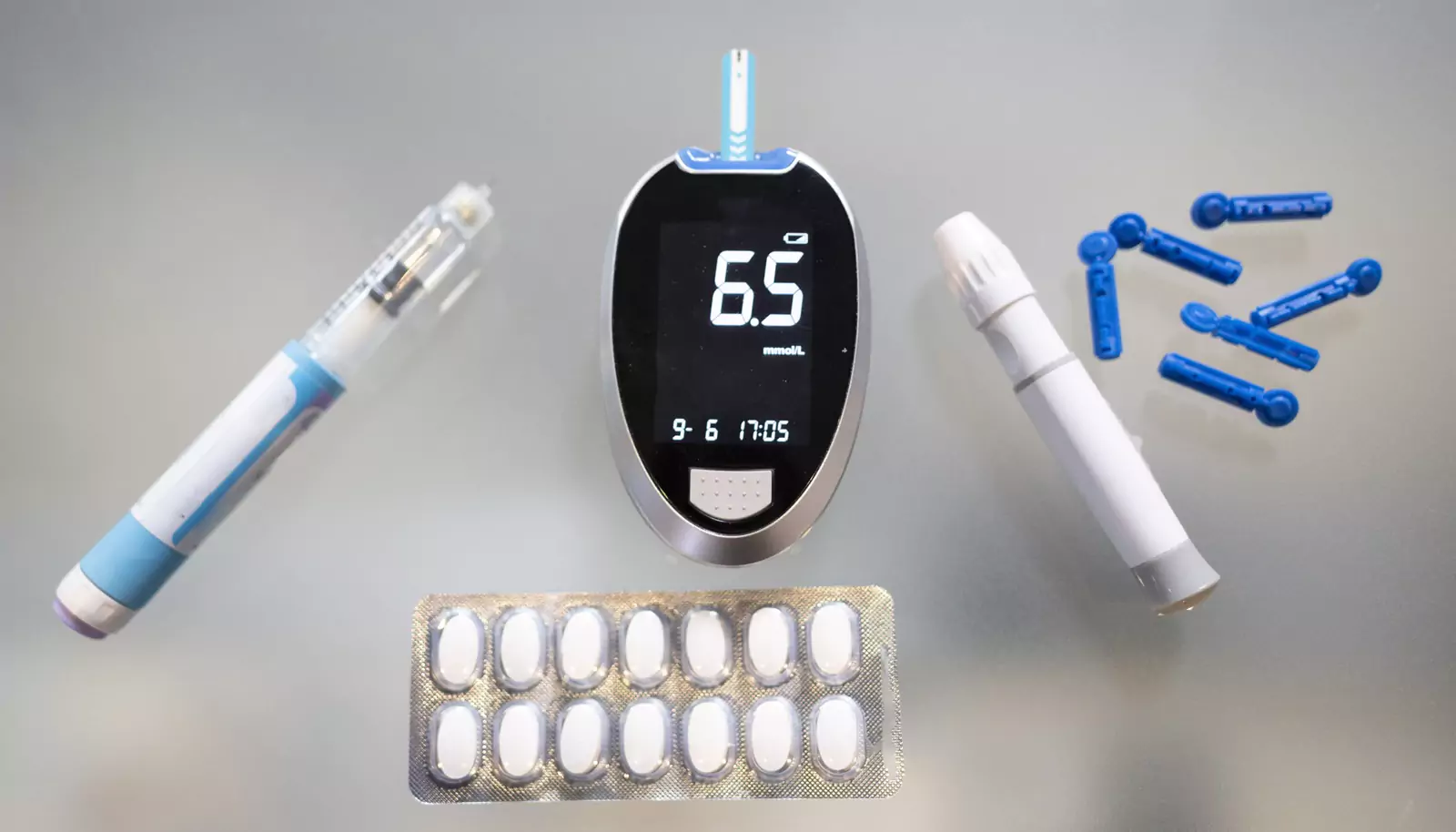






Top Signs Metformin Is Not Working


Table of Contents
- What are the Common Signs of Metformin Not Working?
- SugarMD Advance Glucose Support
- Unusual Signs of Metformin Not Working
- What are the Possible Causes of Metformin Resistance?
- What Tests are Used To Determine Metformin Resistance?
- What to Do If Metformin is not Working?
- What are the Potential Side Effects of Metformin?
- When To Talk To Your Doctor?
- Conclusion
- About The Author
Metformin, the often-prescribed drug for managing type 2 diabetes, is quite the boon for those grappling with blood sugar control. By reducing glucose production in the liver, it eases the path to lower blood sugar levels, simultaneously curbing the risks of complications like heart disease and stroke. However, here's the kicker: Metformin doesn't hold the same efficacy for everyone.
Sometimes, it may not pull its weight as expected. Hence, it's crucial to stay alert to the signs that this drug might not be fulfilling its role. Identifying these signs could be the key to adjusting your diabetes management strategy and ensuring metformin is hitting the mark. In the following sections, we're going to delve into the telltale signs that metformin might be slacking off.
We'll also shed light on what could cause metformin resistance, the tests that confirm it, and the steps to take if metformin seems to be dropping the ball. We'll touch upon the potential side effects of metformin, and when it's time to ring up your doctor if symptoms persist.
Bear in mind, metformin is not an over-the-counter medication. Before altering your treatment course, a conversation with your doctor is a must. This article, while informative, should not be viewed as a substitute for medical advice. Now, let's roll up our sleeves and get down to the common signs that metformin might be coming up short.
What are the Common Signs of Metformin Not Working?
Metformin, the revered prescription drug, is a cornerstone in the battle against type 2 diabetes. It's a key player in blood glucose regulation and a protective shield against long-term health snags. Nonetheless, it's vital to keep an eye out for indications that metformin might not be performing up to par, so you can tweak the dosage or explore other treatment options.
If metformin seems to be dragging its feet, you might notice an uptick in fatigue, weight gain, difficulty in reigning in blood sugar levels, and rising insulin levels. Fatigue, a frequent companion of high blood sugar, is often an early warning sign of metformin's waning efficacy. Weight gain can also raise red flags, as metformin typically curtails glucose in your blood, potentially leading to weight loss.
When metformin seems to be dropping the ball, keeping a tight rein on blood sugar levels can turn into a Herculean task. This could be due to the medication losing its edge or an incorrect dosage. Skyrocketing insulin levels could be another signal that metformin isn't quite up to the task, as maintaining insulin within a healthy range is crucial.
You might also notice other unsettling signs, like abdominal discomfort, nausea, vomiting, and a diminished appetite. These can indicate that your body might be having a hard time absorbing the medication or metabolizing it correctly.
Being on your toes for these common signs that metformin might be falling short is crucial. Adjustments to dosage or looking into alternative treatments might be needed. If you find yourself battling any of these symptoms, don't hesitate to reach out to your doctor posthaste.
SugarMD Advance Glucose Support
Maintaining healthy blood sugar levels can be a challenge. From carby meals to snacks and even with all the effort, it’s still not enough. That’s where SugarMD Advanced Glucose Support comes in.
Our blend of traditional Ayurvedic herbs helps regulate blood sugar levels, curbs cravings, supports weight loss, boosts metabolism and energy. Endorsed by endocrinologists, this unique formula of pure, potent herbs promotes overall blood sugar health. Ideal for both pre-diabetics and Type 2 diabetics.
Unusual Signs of Metformin Not Working
Metformin is a popular medication used to help control blood glucose levels in people with diabetes. It works by inhibiting the production of glucose in the liver, but if it’s not working effectively, it could lead to some much more serious medical issues.
It’s important to recognize the signs of metformin not working, so treatment can be sought sooner rather than later. A frequent early hint of Metformin's failure is abdominal distress, varying from slight discomfort to intense pain. Nausea, vomiting, or even appetite loss may accompany this. These symptoms, albeit not always alarming, might suggest the body's lack of response to the drug.
Rising fatigue signals Metformin's inefficiency, usually resulting from unstable blood sugar levels. Alongside, unanticipated weight gain might occur.
Both indicate the body's struggle to balance glucose levels, showing that Metformin might not be performing as expected. The most alarming signal, though, is the struggle to manage your blood sugar levels.
Consistently high blood glucose or elevated insulin levels might suggest that Metformin's not doing its job. Immediate medical attention becomes imperative as these could hint at a graver issue.
Understanding these signs is vital, and immediate medical attention is paramount if these symptoms emerge. Physicians can decipher the cause and chart out the best action plan.
What are the Possible Causes of Metformin Resistance?
Metformin's inefficiency could be attributed to several factors, including lifestyle, diet, and certain disorders.
- Diet: A diet rich in refined carbs, processed foods, and sugar might diminish Metformin's effectiveness. A balanced diet with fresh fruits, vegetables, whole grains, and lean proteins is vital.
- Exercise: Physical inactivity might lead to Metformin's inefficiency. Regular physical activity can balance blood sugar levels and enhance Metformin's performance.
- Dosage: Erroneous Metformin dosage might induce resistance. Adherence to the doctor's dosage instructions is crucial.
- Drug Interactions: Metformin's effectiveness could be hampered by interactions with other medicines or supplements. Checking with a doctor before introducing new medicines or supplements is essential.
- Underlying Conditions: Conditions like kidney or liver disease might affect Metformin absorption, causing resistance. People with these conditions should discuss Metformin use with their doctors.
Metformin resistance could undermine a diabetes management plan. Awareness of possible resistance causes and working with a healthcare provider to find the right treatment plan is essential.
By understanding Metformin resistance's potential causes and maintaining a healthy lifestyle, Metformin's effectiveness could be enhanced and diabetes better managed.
What Tests are Used To Determine Metformin Resistance?
Metformin, a common tool in diabetes management, might not always work as expected. So what do you do if that's the case? Start by having a chat with your doctor. They can guide you through testing to pinpoint the problem - this could be the key to discovering any Metformin resistance. What's in these tests? Well, they vary.
There's the fasting blood glucose test, which checks the sugar amount in your bloodstream. If it's high, Metformin might not be doing its job. Your doctor might suggest the A1C test as well. This one looks at your blood sugar over the past three months.
High A1C? Metformin resistance could be the culprit. Apart from these, there are liver and renal function tests. These tests gauge the enzymes in your blood derived from your liver and kidneys. If these enzymes are too high, it might mean that Metformin isn't working its magic.
And don't forget the urine test! This one's looking for ketones, which your body produces when it's not getting enough glucose. Spotting these could mean resistance to Metformin. Remember, these tests help clarify your situation. So, be open with your doctor about your concerns or questions regarding them.
What to Do If Metformin is not Working?
Consider this. Diabetes management often starts with Metformin, but sometimes it might not get you where you need to be. If you're seeing any of the signs, it's time to think about next steps.
- Step one? Talk to your doctor. They might suggest adjusting your Metformin dosage or even trying a different medication. They can also help you understand how lifestyle changes could impact your diabetes management.
- Step two, review your goals. Your doctor can help figure out what you're aiming for and how to hit those targets. This might involve tweaking your diet, upping your physical activity, or targeting lower blood sugar levels.
- Step three, consider other medications. If Metformin isn't giving you the results you need, you might need something else. Your doctor can guide you through this process.
- Step four, make some lifestyle changes. A healthy diet, regular exercise, and no smoking can all bolster your diabetes management and make Metformin work better.
- Step five, keep an eye on your blood sugar. Monitoring this will help you see how well your diabetes management plan is working and if any tweaks are needed.
If you've tried all this and you're still experiencing the signs, it might be time to have a serious talk with your doctor about your treatment plan. They can help you find the best way to manage your diabetes.
What are the Potential Side Effects of Metformin?
While, for many diabetics, it's a game-changer. But like all medications, it's not without its downsides. So what are the metformin side effects? Let's dive into one of the big ones - lactic acidosis. This nasty condition is caused by an excess of lactic acid in the body.
Picture this: abdominal pain, muscle cramps, that bone-deep fatigue. Add in shortness of breath, an irregular heart rate, confusion, and, in the worst cases, even coma. These are the red flags. If you're on Metformin and start seeing them, it's time to ring the alarm bell. Get medical help, stat. Next up, diarrhea. Not the most pleasant topic, but it's a common side effect when you're just starting out on Metformin.
Fluids are your friend here. If the diarrhea sticks around, though, a chat with your doctor is in order. Nausea and vomiting can also creep up on you. If they do, or if they get worse, it's time to pause the medication and reach out to your healthcare provider. Abdominal pain and loss of appetite also make the list of potential side effects. Serious stomach pain warrants medical attention.
A dwindling appetite might signal that the medication's not doing its job, or it could hint at a more serious side effect. Now, let's talk about hypoglycemia, or low blood sugar. Miss a meal? Skip a dose? You could be looking at symptoms like dizziness, confusion, headaches, weakness, and even loss of consciousness. It's another 'get help right away' situation.
Sure, Metformin can also bring on headaches, fatigue, and skin rash. If these pop up, a chat with your doctor about adjusting your dosage or switching meds could be helpful. While you're on Metformin, keep a close eye on your blood sugar levels. Any of the symptoms we've talked about today, or blood sugar readings that aren't quite right, warrant a check-in with your doctor. There might be a better dosage or even a different medication that could help manage your diabetes more effectively.
When To Talk To Your Doctor?
Persisting symptoms? Side effects taking a toll? It's time to pick up the phone and have a chat with your doctor about your Metformin treatment. You might be dealing with Metformin resistance. Or, something else could be stirring up trouble. Unresolved symptoms need a closer look. Your doctor's on the case - they might tweak the Metformin dosage, or maybe the meds aren't playing their part well.
You might hear about other potential remedies, or some lifestyle tweaks that could help you in your battle against diabetes. And when side effects get out of hand, don't hesitate to seek advice. Nausea, abdominal pain, low blood sugar, lactic acidosis - these are red flags. Don't wait. Call your doctor. Taking Metformin religiously but your sugar levels are still high? A conversation with your doctor is due.
They'll likely recommend blood glucose tests and liver/renal function tests. This can help pinpoint if Metformin resistance is the culprit behind those stubborn sugar levels. Your doctor might suggest a lifestyle overhaul. A nutritious diet, regular exercise, and stress management - these can all bring down sugar levels and boost your health.
Is Metformin not cutting it? Your doctor might put you onto a different medication, something more suited to your case. They'll guide you through it, helping you find the best fit. It's vital to know your Metformin. The common side effects, the unusual ones, and the potential ones. If anything gets severe, don't delay. Seek medical help. Stay proactive in managing your diabetes, partnering closely with your healthcare provider.
Conclusion
Metformin - it's a powerful ally in your fight against diabetes. But for some, it doesn't quite hit the mark. Maybe you're tired more often, putting on weight, or having trouble controlling sugar levels. Maybe you're feeling discomfort in your abdomen, feeling sick, or losing your appetite.
These could be signs that Metformin isn't doing its job. Why might Metformin fall short? A poor diet, lack of exercise, the wrong dosage, other meds or supplements, kidney or liver disease - these could all be factors. Tests like blood glucose, A1C, liver function, and renal function tests can help identify Metformin resistance.
If Metformin's not pulling its weight, talk to your doctor. Revisit your goals, try new meds, adjust your lifestyle, and keep a close eye on your sugar levels. Be aware of Metformin's side effects, including lactic acidosis, diarrhea, nausea, abdominal pain, and low blood sugar.
If things don't get better or get worse, reach out to your doctor. Metformin's good for managing diabetes. But be alert to the signs that it's not working. Be proactive in figuring out why and deciding what to do next. Medical advice and lifestyle changes can help you get the most out of managing diabetes with Metformin.
About The Author
Meet Dr. Ahmet Ergin a highly skilled and dedicated endocrinologist with a passion for diabetes care. Dr. Ergin earned his medical degree with honors from Marmara University in Istanbul. He completed internal medicine residency and endocrinology fellowship at Cleveland Clinic.
Dr. Ergin is board-certified in Internal Medicine, Endocrinology, Diabetes, and Metabolism due to his vast medical expertise. He's a certified diabetes educator, author of "The Ultimate Diabetes Book," and founder of "the SugarMD YouTube channel."
Dr. Ergin offers exceptional diabetes care to his patients in Port Saint Lucie, FL, helping them manage effectively. Disclaimer: These statements have not been evaluated by the Food and Drug Administration. Information on this website isn’t intended to treat, cure or prevent any disease. Discuss with your doctor and do not self-treat.
Written By Dr. Ahmet Ergin
456 total articles
Meet Dr. Ahmet Ergin, a highly skilled and dedicated endocrinologist with a passion for diabetes care. Dr. Ergin earned his medical degree with honors from Marmara University in Istanbul. He completed internal medicine residency and endocrinology fellowship at Cleveland Clinic. Dr. Ergin is board-certified in Internal Medicine, Endocrinology, Diabetes, and Metabolism due to his vast medical expertise. He's a certified diabetes educator, author of “The Ultimate Diabetes Book,” and founder of “the SugarMD YouTube channel.” Dr. Ergin offers exceptional diabetes care to his patients in Port Saint Lucie, FL, helping them manage effectively. For a closer look into his insights and experiences, connect with Dr. Ahmet Ergin on LinkedIn, Instagram, and YouTube.”
Disclaimer: These statements have not been evaluated by the Food and Drug Administration. Information on this website isn't intended to treat, cure or prevent any disease. Discuss with your doctor and do not self-treat.
Products











